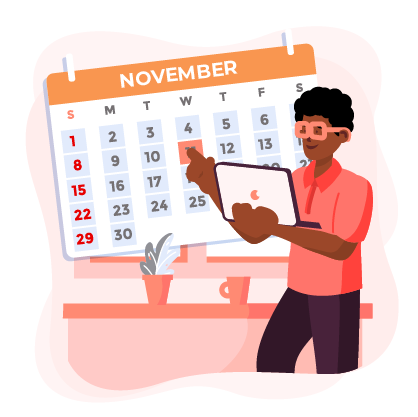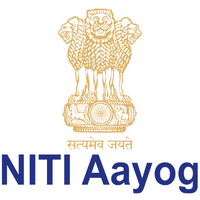Setting goals and working towards achieving them works well in all spheres of life. It is something that you aim or work towards achieving. As a student, setting goals means breaking down tasks that could work wonders for you. Some of you might not agree with it and believe in grasping all that is available without putting a cap to the limit. The fact is, setting a goal helps you accomplish better. Here’s how goal setting works:
- Once you set the goal, it gives you a clear vision of the milestone at hand. This eliminates the hassle of unnecessary and points towards a specific task. For instance, set a short-term goal of reading a specific chapter. After you finish it, you will feel a sense of accomplishment.
- Too many tasks at a time can be overwhelming. By setting goals you can meet the deadline without last-minute hassles. For instance, if your assignment is due for submission in two days, set a goal each day to get done with it hassle-free and in parts.
- Setting a goal also puts in a position of accountability. When you commit yourself to a goal, you feel a sense of responsibility and hence, end up doing better.
How to Set the Right learning Goal?
SMART goals that stand for Specific, Measurable, Attainable, Realistic, and Time-Specific.
- Specific – When targets become more concrete, it becomes easier to concentrate on them and to take the appropriate steps to achieve them. For instance, set a target such as, “I will learn further” is simply nebulous. Specifying that you will research between 2 and 4 PM every day will help you to set an actionable schedule.
- Measurable– The effectiveness of a target is demonstrated by how you can calculate it. You have something to aspire for, it could be setting a target to research, a certain amount of hours or, increasing your exam score to a certain standard.
- Attainable – Long-term and short-term both are important. A long-term goal to become a veterinary nurse gives you a sense of direction. While a short-term goal of completing a specific unit by Friday evening would keep you in-line with the present situation.
- Realistic – Don’t make unrealistic goals. It is setting yourself up for failure to set targets that are so optimistic. A target of studying for 40 hours per week is not practical. You should start with 1 or 2 hours a day and get the ball rolling.
- Time-Specific – Set your goals with a time-stamp. For instance, you have 4 months left for your exams, you can set a target score of 92/100. So you are essentially placing a timestamp of 4 months on your goal.
How to stay on track with Learning Goals?
One of the first steps to academic achievement is setting targets. Many people start with positive ideas but later, lose confidence. Some get distracted by external factors and lose sight of the target. To ensure you don’t end up with the same fate, here are some strategies:
- When you take any action towards your goal, you signal your brain that, you are going in the direction of your target. Minor actions like cleaning up your desk can be inspiring for you.
- Create a list of your priorities. Data reveals that individuals who maintain written notes of their ambitions are 33% more likely to succeed.
- Periodically revisit your objectives. Doing the same job repetitively allows the mind to function better and more effectively. It is important to write the goals, as this will encourage you to read them out loud every day. Mentally repeating them or sharing them with others can also be effective.
- Set new and appropriate goals depending on the current situation. And if the target looks impossible, don’t give up on it. Continue to revise your objectives while you gain experience. Also, you can make changes to your research plan if you have other commitments.
In the technologically advanced world, students have access to online resources, such as live classes, online doubt-solving sessions, One-on-one personalized counseling, and so much more. All these are resources help make student’s life easy and hassle-free. One such friendly resource for students is GrabGuidance, a one-stop-shop extending the provision of, academic guidance for students, personalized doubt-solving, and so much more. Get in touch with us to know more!























